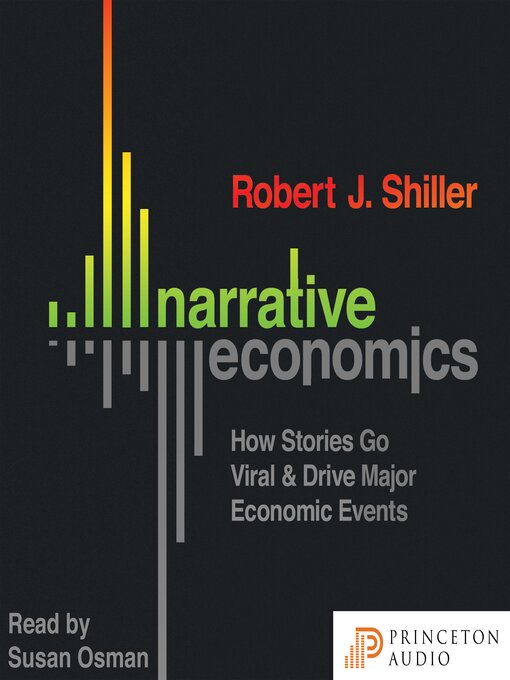- Available now
- New eBook additions
- New kids additions
- Try something different
- Peppa Pig小猪佩奇
- Classic Chinese Tales 中国古典神话故事
- See all ebooks collections
Narrative Economics
How Stories Go Viral and Drive Major Economic Events
-
Creators
-
Publisher
-
Release date
October 1, 2019 -
Formats
-
OverDrive Listen audiobook
- ISBN: 9780691199054
- File size: 320437 KB
- Duration: 11:07:34
-
-
Languages
- English
-
Reviews
-
Kirkus
September 1, 2019
An engaging scholarly study of the stories we tell about economic events--stories that go viral, for better or worse. Bitcoin is the wave of the future, an anarchist challenge to national currencies meant to disguise the identity of those who hold stores of the "cryptocurrency." It's been valued at something around $300 billion. However, writes Nobel Prize-winning Yale economist Shiller (Finance and the Good Society, 2015, etc.), "Bitcoin has no value unless people think it has value, as its proponents readily admit." It attains value because it's surrounded by economic narratives, some erratic, some untrustworthy--of the sort that fuel classic bubbles: the mania of speculation that surrounded the South Sea Company, the mania for tulips, the fear-of-missing-out mania for being part of the future rather than the past. By the author's account, narratives are too often overlooked, so that "we need to incorporate the contagion of narratives into economic theory," recognizing them to be a driver of economic change, for good or ill. "Contagion" is a word used advisedly, for Shiller draws some of his models from epidemiology; his work also combines with the growing acknowledgment that people are often not the rational actors of classic economic theory. Accounting for narrative epidemics does not necessarily mean trying to counter them, though economic forecasts--the currently building sentiment that a major recession is about to hit, for example--are best used not to frighten but to warn, so that self-fulfilling-prophecy disasters do not in fact happen. Shiller locates one pioneering forecaster in the economist John Maynard Keynes, who warned--unsuccessfully--that placing heavy penalties on a defeated Germany after World War I would yield an even bloodier disaster powered by the thirst for vengeance. That narrative proved correct even if Ronald Reagan's anecdotal embrace of supply-side economics proved a sham even as his stories "touched off an intense public mandate for tax cutting." Wonky but of immense value to economists and policymakers working on the behavioral side of the field.COPYRIGHT(2019) Kirkus Reviews, ALL RIGHTS RESERVED.
-
Formats
- OverDrive Listen audiobook
subjects
Languages
- English
Loading
Why is availability limited?
×Availability can change throughout the month based on the library's budget. You can still place a hold on the title, and your hold will be automatically filled as soon as the title is available again.
The Kindle Book format for this title is not supported on:
×Read-along ebook
×The OverDrive Read format of this ebook has professional narration that plays while you read in your browser. Learn more here.

